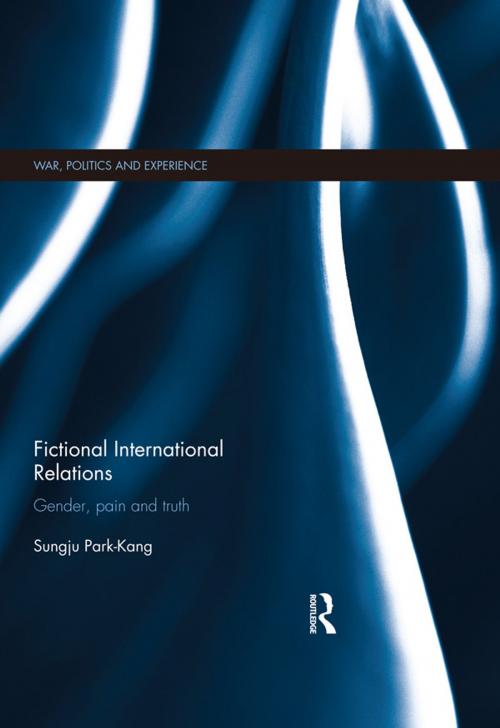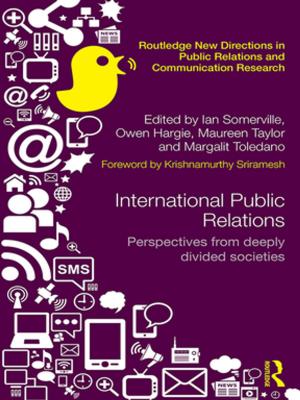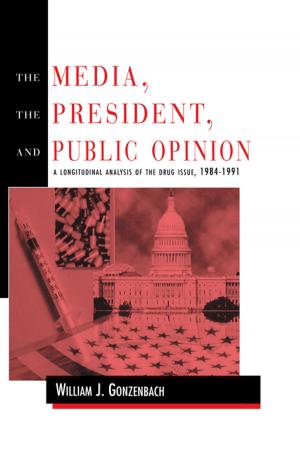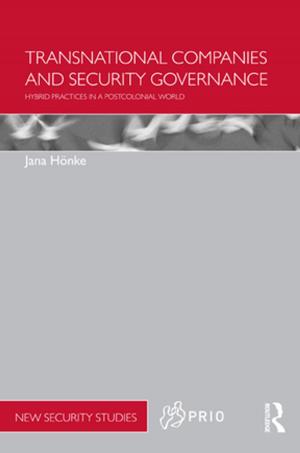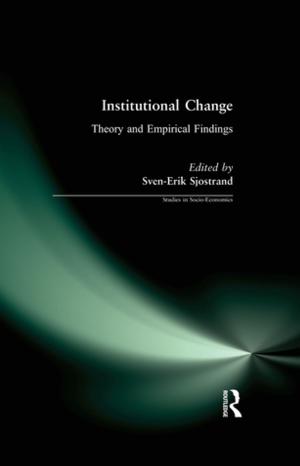Fictional International Relations
Gender, Pain and Truth
Nonfiction, Social & Cultural Studies, Political Science, International, International Relations, Social Science, Gender Studies| Author: | Sungju Park-Kang | ISBN: | 9781317970514 |
| Publisher: | Taylor and Francis | Publication: | June 5, 2014 |
| Imprint: | Routledge | Language: | English |
| Author: | Sungju Park-Kang |
| ISBN: | 9781317970514 |
| Publisher: | Taylor and Francis |
| Publication: | June 5, 2014 |
| Imprint: | Routledge |
| Language: | English |
This book proposes the idea of fictional International Relations (IR) and engages with feminist IR by contextualising the case of a woman spy in Korea in the Cold War.
Fictional imagination and feminist IR encourage one to go beyond conventional or standard ways of thinking; it reshapes taken-for-granted interpretations and assumptions. This takes the view that a dominant narrative of events might be reconstructed as a different kind of story, once events are placed within a wider temporal approach. The case of the woman Korean secret agent- who reportedly bombed a South Korean plane (Korean Airlines (KAL) Flight 858) under the instruction from the North Korean leadership to disrupt the Seoul Olympic Games- is chosen to serve as an effective example of fictional IR and feminist IR scholarship, which can be investigated through the research puzzles concerning gender, pain and truth.
Fictional International Relations has three main objectives. First, it investigates the way in which fiction-writing can become a method for dealing with data problems and contingency in IR. Second, the book examines how gender, pain and truth operate or interact in the case of the Korean spy and how this observation can strengthen feminist IR in terms of intersectionality. Finally, the author goes on to explore why this case has been so difficult to study openly and thoroughly. The aim of the book is not to refute the official findings; the point is to unpack complex dynamics surrounding truth—more specifically how the official account has been executed as ‘the’ truth—based on a feminist-informed investigation.
This book will be of interest to students of IR theory, critical security studies, Cold War studies, gender studies and Asian studies.
This book proposes the idea of fictional International Relations (IR) and engages with feminist IR by contextualising the case of a woman spy in Korea in the Cold War.
Fictional imagination and feminist IR encourage one to go beyond conventional or standard ways of thinking; it reshapes taken-for-granted interpretations and assumptions. This takes the view that a dominant narrative of events might be reconstructed as a different kind of story, once events are placed within a wider temporal approach. The case of the woman Korean secret agent- who reportedly bombed a South Korean plane (Korean Airlines (KAL) Flight 858) under the instruction from the North Korean leadership to disrupt the Seoul Olympic Games- is chosen to serve as an effective example of fictional IR and feminist IR scholarship, which can be investigated through the research puzzles concerning gender, pain and truth.
Fictional International Relations has three main objectives. First, it investigates the way in which fiction-writing can become a method for dealing with data problems and contingency in IR. Second, the book examines how gender, pain and truth operate or interact in the case of the Korean spy and how this observation can strengthen feminist IR in terms of intersectionality. Finally, the author goes on to explore why this case has been so difficult to study openly and thoroughly. The aim of the book is not to refute the official findings; the point is to unpack complex dynamics surrounding truth—more specifically how the official account has been executed as ‘the’ truth—based on a feminist-informed investigation.
This book will be of interest to students of IR theory, critical security studies, Cold War studies, gender studies and Asian studies.
